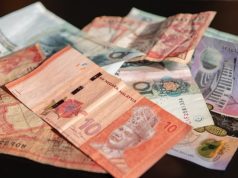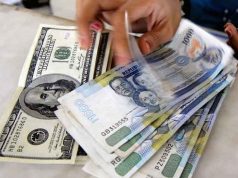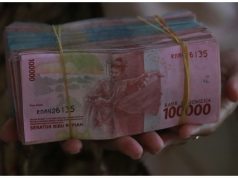
- S.Korean won hits two-week low
- Indonesian rupiah snaps eight-day rally
- Philippine stocks hit over two-month high
Asian emerging market currencies struggled on Monday against a broadly stronger dollar as investors bet an attack on former U.S. President Donald Trump boosted chances of his re-election in November, stoking fears of instability.
The prospect of Trump’s return to the White House after the attack is intensifying investors’ worries that his hawkish trade policy, loose regulation and fiscal plans, and potential tax cuts could fan inflation and push back rate cuts.
The dollar <=USD> was last trading at 104.270 against a basket of major currencies. While cash U.S. Treasuries were untraded in Asia due to a holiday in Japan, the 10-year Treasury futures <TYc1> trended lower. [USD/]
“I see the odds of the Trump trade getting reinforced over the next few months till November, unless the Democrats can come up with a really credible alternative,” said Hemant Mishr, chief investment officer at S Cube Capital in Singapore.
“I would bet on high growth, high inflation trades – financials and energy to do well, and negative for Asian currencies.”
The South Korean won <KRW=KFTC> fell as much as 0.6% to its lowest since early July, while the Thai baht <THB=TH> and the Philippine peso <PHP=> lost 0.4% and 0.3%, respectively.
The Indonesian rupiah <IDR=> declined 0.3% after an eight-day rally until last Friday, ahead of the central bank’s monetary policy meeting on Wednesday.
“The weakness in the rupiah today is likely after the strong payback it has had over the month of June over concerns of potential fiscal slippage under the Prabowo administration,” said Khoon Goh, Asia research head at ANZ.
Bank Indonesia (BI) is widely expected to hold interest rates at 6.25% at this week’s meeting, but might cut by 25 basis points next quarter, a Reuters poll showed.
In Latin America, the Mexican peso <MXN=> was down 1.1% after a five-day streak of gains. On Friday, Peru’s sol <PEN=> and Colombia’s peso <COP=> ended at their highest levels in a month.
Equities in emerging Asian countries were mixed, with shares in Malaysia <.KLSE> up 0.6%, while those in Taiwan <.TWII> and Thailand <.SETI> down 0.2% and 0.7%, respectively.
The Philippine benchmark index <.PSI> was up as much as 1%, trading roughly around its highest level since early May.
China, the region’s biggest trading partner, reported second-quarter economic growth that was much slower than expected, keeping alive expectations that Beijing will need to inject even more stimulus to boost growth.
The Chinese yuan<CNY=CFXS> slipped off a one-month high against the dollar touched in the prior session, while the Shanghai Composite index <.SSEC> was trading slightly higher.
HIGHLIGHTS:
** QUOTES-Investors react to shooting at Trump election rally
** China c.bank leaves medium-term rate unchanged as expected
** Thai economy faces upheaval due to factory closures and cheap Chinese imports
** Financial markets closed in Japan for holiday
| Asia stock indexes and currencies at 0658 GMT | ||||||
| COUNTRY | FX RIC | FX DAILY % | FX YTD % | INDEX | STOCKS DAILY % | STOCKS YTD % |
| Japan | <JPY=> | -0.14 | -10.78 | <.N225> | – | – |
| China | <CNY=CFXS> | -0.18 | -2.27 | <.SSEC> | 0.11 | -0.01 |
| India | <INR=IN> | -0.02 | -0.41 | <.NSEI> | 0.40 | 13.20 |
| Indonesia | <IDR=> | -0.28 | -4.85 | <.JKSE> | -0.55 | 0.20 |
| Malaysia | <MYR=> | -0.15 | -1.80 | <.KLSE> | 0.56 | 11.93 |
| Philippines | <PHP=> | -0.25 | -5.40 | <.PSI> | 1.11 | 4.21 |
| S.Korea | <KRW=KFTC> | -0.51 | -6.86 | <.KS11> | 0.14 | 7.74 |
| Singapore | <SGD=> | -0.14 | -1.76 | <.STI> | 0.02 | 7.97 |
| Taiwan | <TWD=TP> | -0.06 | -5.66 | <.TWII> | -0.16 | 33.18 |
| Thailand | <THB=TH> | -0.36 | -5.70 | <.SETI> | -0.65 | -6.53 |
—Reporting by Shivangi Lahiri in Bengaluru; Editing by Clarence Fernandez and Mrigank Dhaniwala








